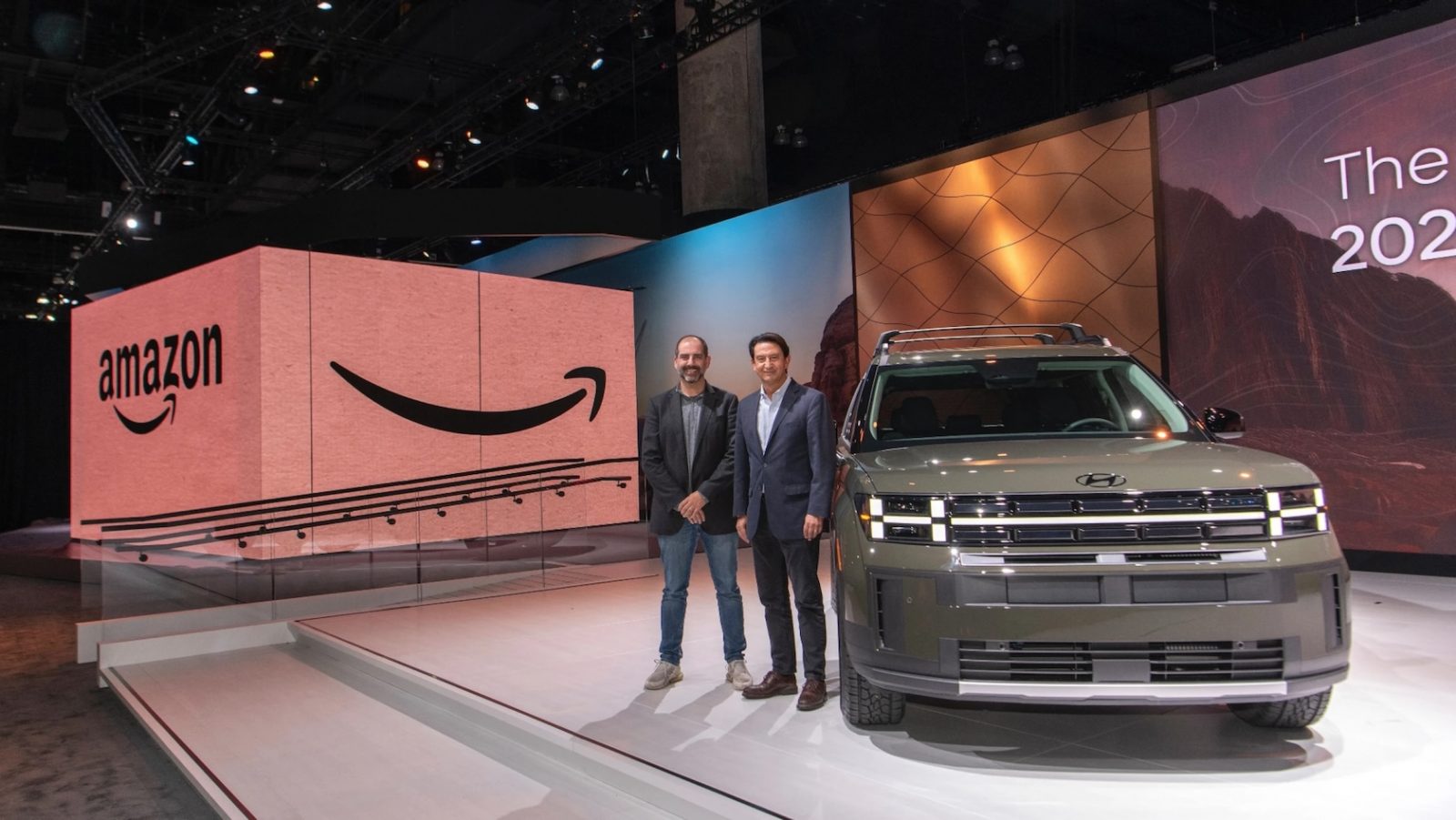Amazon and Hyundai Motor Company announced Thursday a wide-ranging strategic partnership that will include selling Hyundai vehicles through Amazon’s online store starting in 2024 and using Amazon’s cloud services to transform Hyundai’s operations.
The partnership marks the first time customers will be able to purchase vehicles directly from Amazon’s U.S. website. Hyundai will be the first automaker to offer that service, allowing customers to search vehicle inventory at local dealers, select models, configure options, apply financing and complete the purchase online. Vehicles will be delivered to customers by Hyundai dealers.
The companies say the arrangement will provide shoppers another way to buy vehicles while giving Hyundai dealers additional awareness and convenience for their customers.
As part of the agreement, Hyundai will use Amazon Web Services as its preferred cloud provider and migrate much of its legacy information technology infrastructure to AWS. That transition aims to help Hyundai become more data-driven, optimize supply chains and manufacturing and develop new connected car services globally.
A multiyear deal between the companies also will put Amazon’s Alexa voice assistant technology into next-generation Hyundai vehicles starting in 2025. Drivers will be able to access Alexa’s home management functions such as controlling lights, locks and thermostats as well as ordering Amazon packages or streaming Amazon Music from their car. Alexa will integrate with Hyundai’s own in-vehicle controls.
The broad strategic partnership combines Seattle-based Amazon’s online retail, cloud computing and smart home expertise with connected technologies being developed by Hyundai and affiliate automaker Kia Corp.
“Our broad, strategic partnership should make customers’ lives better and easier every day,” said Amazon CEO Andy Jassy.
Our Thoughts
Amazon’s partnership with Hyundai will accelerate the auto industry’s online shift. Customers increasingly want to browse inventory, secure financing and complete purchases without visiting physical dealerships.
Ultimately, the power will tip toward consumers who desire to avoid the hassles of in-person haggling and embrace transparent e-commerce car buying.
